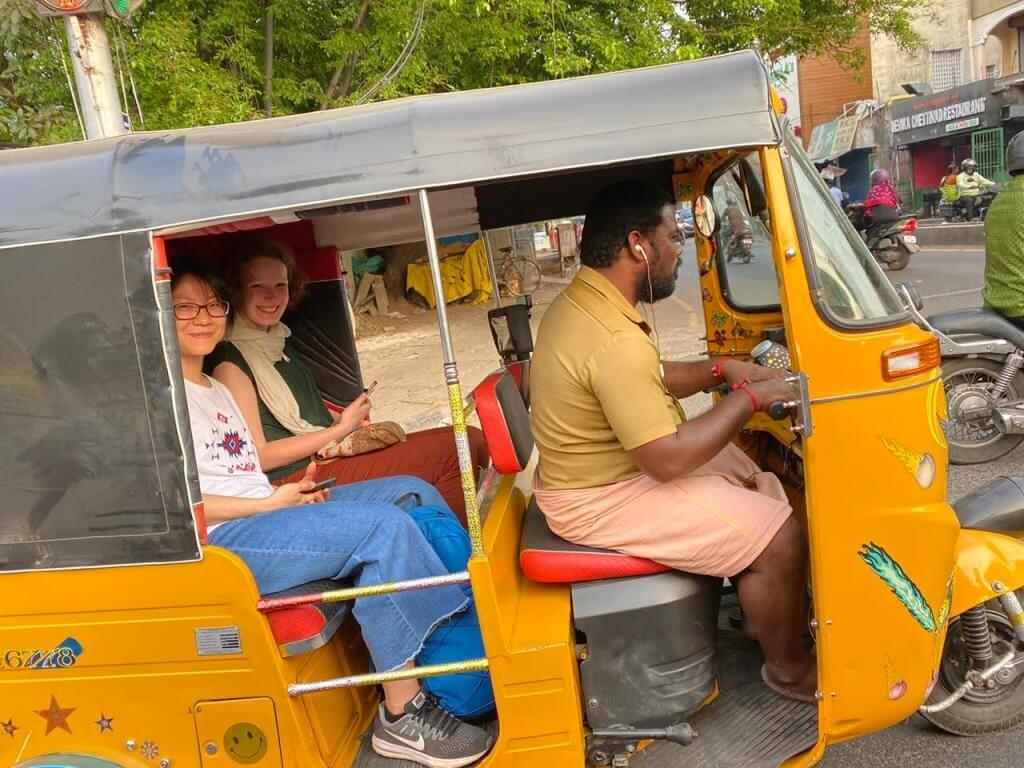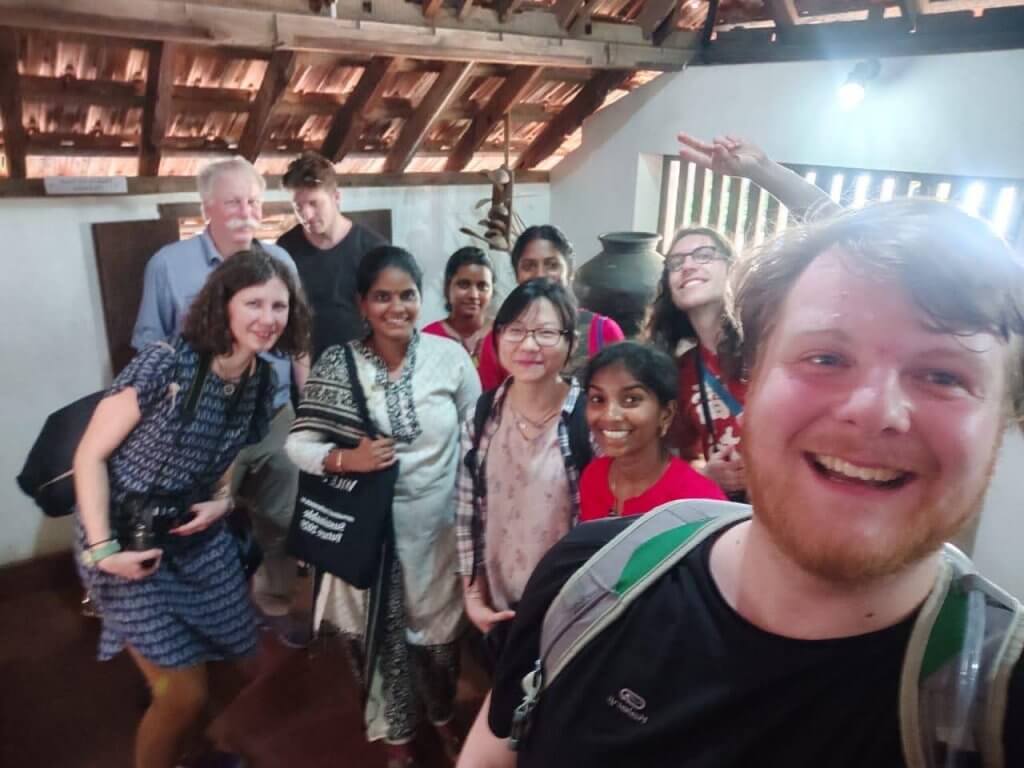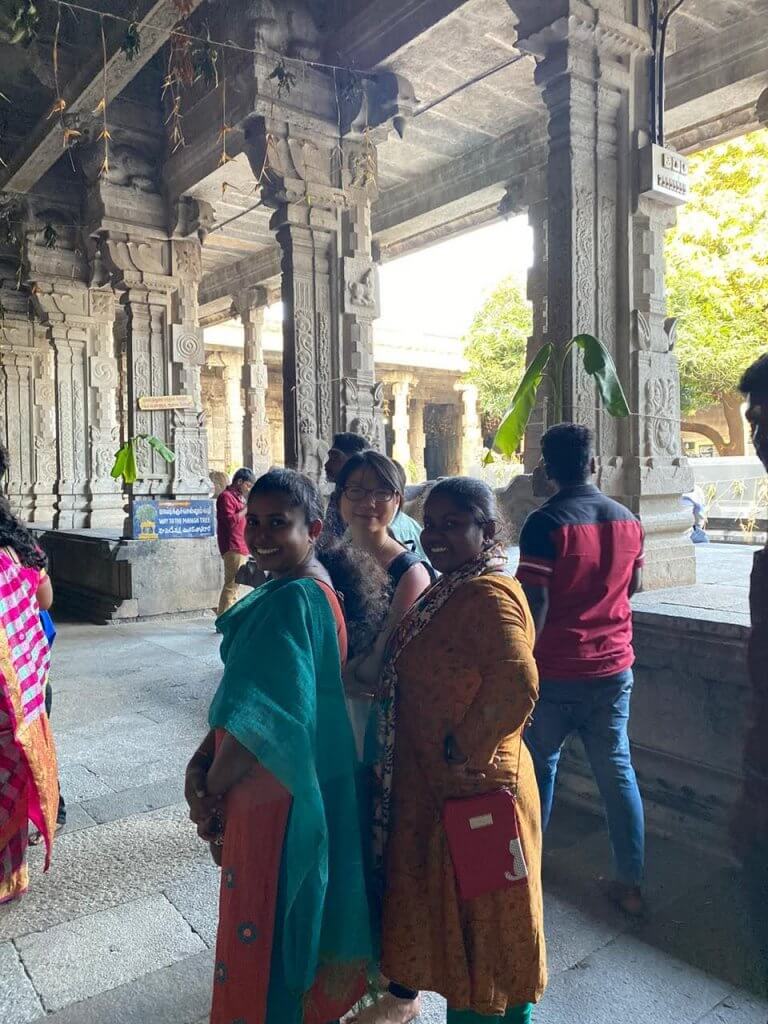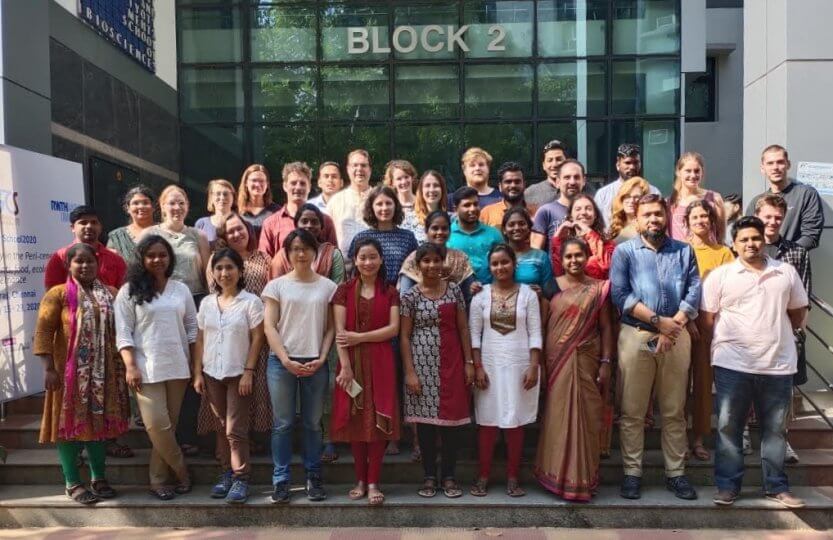Science Schools are an integral part of the MSc Global Change Ecology programme at the Universität Bayreuth. All of our students join several seasonal schools every year, that cover interdisciplinary topics on sustainability and climate action. In this context, today, we have the opportunity to get to know the GCE 2019 student Yun-Yun Tsai and learn about her experience at the Indo-German Centre for Sustainability (IGCS) Winter School. A great read, full of tips (specially if you are a GCE as well)! Enjoy!
GCE Blog: Tell us about your background and why did you choose the GCE master programme.
Yun-Yun: I studied Biology during my Bachelor’s. Because I love nature and the outdoor activities, I’ve always been interested in environmental protection and sustainable environmental management. Although my background is purely natural science, I realized that interdisciplinary cooperation is essential for transferring scientific knowledge into action through voluntarily engaging in the conservation project from NGO and working experience with governmental research projects. GCE is the interdisciplinary master program which combines natural science perspective with social science approach. I think this linkage is crucial for my future career.
GCE BLOG: What motivated you to take part in the IGCS Winter School themed “Sustainability in the Peri-scene: Human Settlements, food, ecology and governance”?
Yun-Yun: I’m generally interested in the sustainable issues. I think this winter school is quite tempting for me because it consists of many aspects towards the sustainability. Furthermore, India is a country that I have always wanted to travel to. Attending this science school is the great opportunity for me to dive into the sustainable issues in India and explore this lively country at the same time.

GCE Blog: How did you discover the ICGS Winter School and how was the process to obtain a scholarship to attend the school?
Yun-Yun: I firstly knew this information from the GCE students from previous year who attended this science school before, then I searched for more detail from its webpage. The application process for the internship is quite simple, you need a recommendation letter and fill in the application form online. Regarding the recommendation letter, I asked Stephanie to write this letter for me. She is very willing to help, you just need to make an appointment with her and leave some time for her to revise this letter.
GCE Blog: Tell us about the theme of this Science School and how was your experience attending it in India.
Yun-Yun: The main theme in this science school is sustainability, and the main work stream of this science school is based on lectures. It also combines several field trips, panel discussion, stakeholder role play exercise, and group work. Overall, this science school helps me to understand the current situation of India which is the rapid emerging country facing many environmental issues. I also know more about the concept of peri-urban. The topics of lectures are very diverse, including the introduction of Indian governmental structure, peri-urban ecology, waste water reuse, waste management, the lecture from the social enterprise – Kabadiwalla Connect, and the local initiative for water management – Kudimaramathu which means maintenance and repair by people.

GCE Blog: As you had to work on a project, what was the topic of your proposal and how was the dynamic working on it.
Yun-Yun: Our group investigated the impacts of land-use change in the peri-urban SIPCOT area which is the governmental supported economical IT-park. We did several field surveys and interviewed local people. Besides, we visualized landscape changes in our study area by comparing Google Earth images and created the land use and land cover change maps from Landsat satellite images. It’s very nice to work in the team which comprised 3 Indian students and 3 German students. You can experience the intercultural cooperation and they’re super helpful for our excursions and interviews with locals.
GCE Blog: What was your favourite part in doing this science school?
Yun-Yun: What I like the most in this science school is the field trip and the subsequent group work. Going through the study regions, and observing and seeing the current issues by myself, I have the real and tighter connection to the study areas. We had four excursions to go through different peri-urban sites: Muthukadu, Manimangalam and Sriperumbudur and Ennore. In Ennore, the local NGO also participated this field trip to explain the issues that they confronted. Except for that, we also visited several Hindu Temples and the weaver’s workplace for Sari. This science school is really a joyous and knowledgeable culture feast.

GCE Blog: What do you recommend to people who want take this science school?
Yun-Yun: The overall organization is great and the scholarship almost covered the cost of the entire journey. Be prepared with the intense schedules and group work, and the different punctuality in India. Be open-minded to make local India friends, they’re a bit shy but very friendly. Take off the prejudice lenses, talk to people, and then try to understand the context. Since we are dealing with sustainability, the decision making is highly related to cultural and economic background. The first step is to understand the context and accept the difference, then it’s possible to take the effective action. I would recommend students who is interested in the sustainability and intercultural experience to apply for this winter science school!
The website of the IGCS Science Schools is: http://www.igcs-chennai.rwth-aachen.de/igcs-schools-2020/
All the pictures used here were kindly made available by Yun-Yun Tsai.










nice topic thanks for this
Hi! thank you for the information this article is very interesting
nice topic thanks
thank you